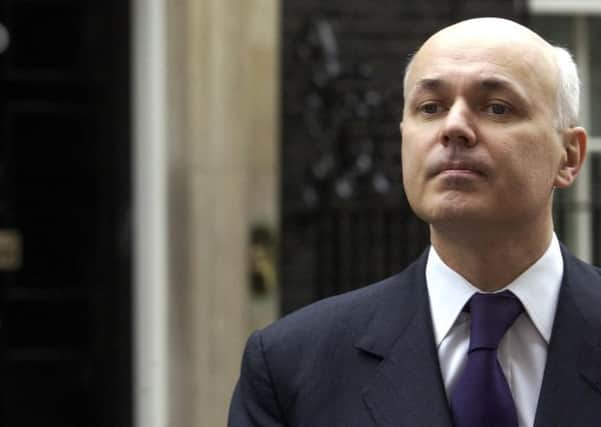Iain Duncan Smith axes Child Poverty Act targets


In a statement to the Commons, Mr Duncan Smith, who has been carrying out a controversial overhaul of welfare since 2010, insisted that his intention was to tackle the causes of child poverty rather than the symptoms.
But Labour shadow work and pensions secretary Stephen Timms accused him of trying to “bury bad news” and said his statement was “the obituary to compassionate Conservatism.”
Advertisement
Hide AdAdvertisement
Hide AdHowever, Mr Duncan Smith received backing from Labour work and pensions committee chairman Frank Field, who is also a leading reformer of the benefits system, and described the announcement as “a welcome first step in the right direction.”
Addressing MPs, Mr Duncan Smith said: “Eradicating child poverty is an absolute priority for this Government, and I have consistently argued that it is not enough to tackle the symptoms without also tackling the underlying causes.
“The measures announced today are the foundation of a new, comprehensive way of addressing poverty and reflect our conviction that work is the best route out of poverty.
“Our new approach will drive effective Government action by focusing attention on making meaningful change to children’s life chances.”
He said that new legislation to replace the Child Poverty Act 2010 will use the proportion of children living in all workless households and the educational attainment of all pupils and the most disadvantaged pupils at age 16 as new measures of poverty.
Mr Duncan Smith cited Mr Field and former Labour cabinet minister Alan Milburn as other critics of the current measures.
He told MPs: “Over a decade ago, I demonstrated the relative income measure of poverty was flawed and it was driving government policy, I thought, on an unsustainable path.
“How we measure things matters because it influences what governments focus on and what we target.”